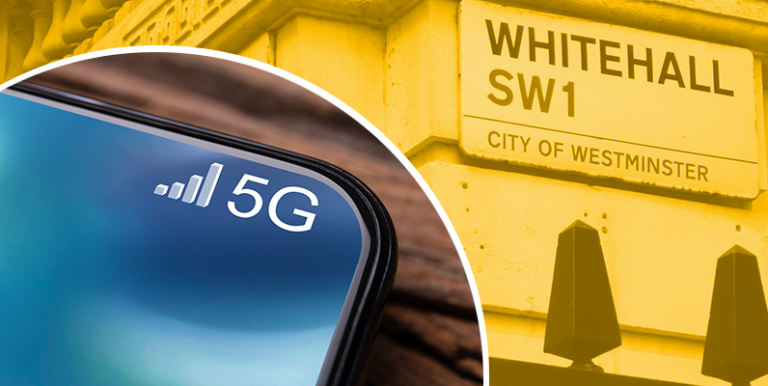UCL contributes to Government published review of £43.9 million DCMS investment into 5G
14 December 2020
On the 8th of December, the Government published a review of the early impacts of the DCMS funded 5G testbeds and trials programme with UCL ICCS members providing independent technical input to the review

Author: Dr Robert Thompson, Institute Manager
5G | Government | Testbeds
ICCS members have provided a substantial contribution to a review of the Government Department for Digital, Culture, Media and Sport (DCMS) funded 5G Testbeds and Trials Programme, the 'Process and Early Impact Evaluation' was published by the Government last week.
The review was led by global consultancy firm ICF in association with The UCL Institute of Communications and Connected Systems (ICCS), Plum Consulting and George Barrett (independent consultant). The review assesses the performance of the programme to date, considering both the processes of the programme and the early impact.
The document takes into consideration early phases of the programme including the 5G UK Test Network, a £16m funded project jointly delivered by Surrey University, Bristol University and King's College London; The UK5G Innovation Network, a national network launched in March 2018 dedicated to the promotion of research, collaboration, and commercial applications of 5G; and the six initial testbed and trial projects.
The initial testbed and trial projects developed 5G facilities to trial 5G-enabled use cases that explored a range of applications across sectors. The projects saw an investment of £27.9 million from the government and leveraged £16.2 million in further contributions from the project partners.
The UCL team consisted of Izzat Darwazeh, Director of ICCS and Professor of Communications Engineering; Miguel Rio, Professor of Computer Networks and Dr Robert Thompson, ICCS Manager who coordinated and led the UCL input.
The UCL team provided their knowledge of 5G, wireless systems, data networks, the research funding landscape and technical innovation to enable a thorough and independent review that placed the processes and impacts of the Government-funded programme in the context of state-of-the-art developments and the wider 5G research and innovation landscape.
The review provided lessons learned that will inform further phases of the UK Government's interventions into 5G innovation. Early impacts of the programme show that the activities were successful in bringing together diverse organisation types hat had never collaborated before and provided representation from across the value chain of 5G applications including researchers, manufacturers, vendors, developers and customers.
With project participants reporting no comparable public funding the investment from DCMS was successful in delivering functioning testbeds capable of replicating or demonstrating 5G aspects such as low-latency and reliability. The level of 5G impact or inclusion of 5G technologies varied across the different projects.
Dr Robert Thompson, ICCS manager said:
It is important that, as academic organisations, we engage with the review of such programmes, this helps us to feed-back to the Government pointing out areas of success along with processes or approaches that we, as a community, can improve on. Ultimately we hope activities like this accelerate the UK as one of the best places for academia and industry to research and innovate new technologies.
Further assessment of the Government programme including later phases that are currently still ongoing will be undertaken in 2022 and 2025 allowing a full review into the magnitude to which the government intervention has stimulated 5G to the benefit of the UK economy and engineering community.
Links
Scoping and Evaluation reports for the 5G Testbeds and Trials Programme
Department for Digital, Media, Culture and Sport
ICF
Professor Izzat Darwazeh's Profile
Professor Miguel Rio's Profile
Dr Robert Thompson's Profile
 Close
Close

